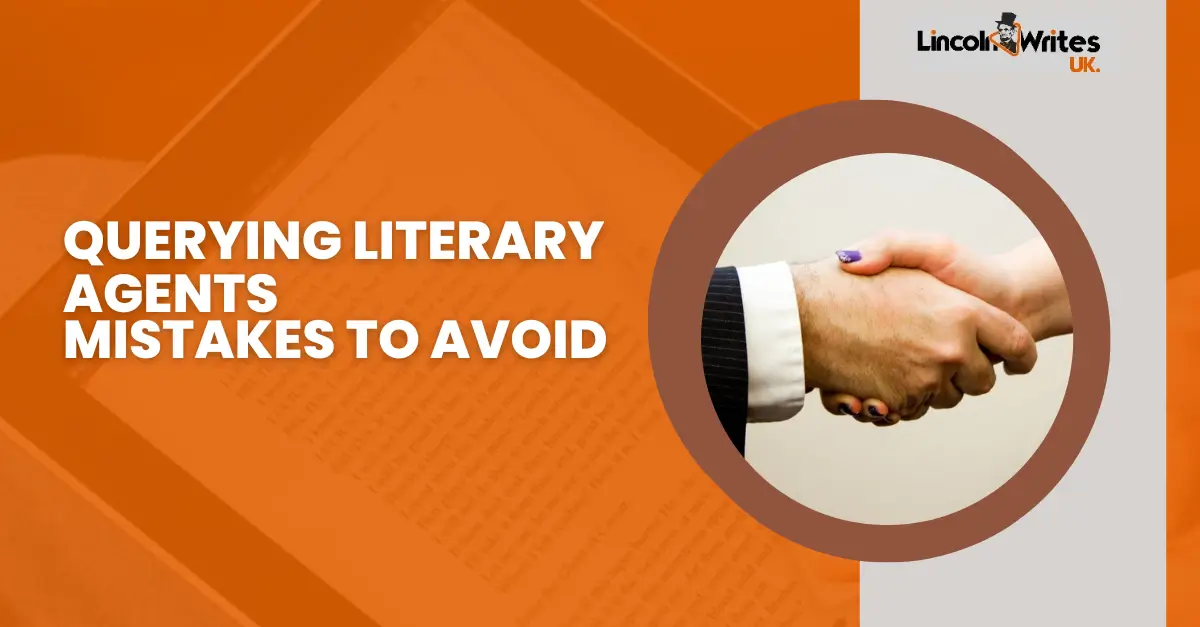You’ve written the book. You’ve lived with these characters, shaped these scenes, and possibly doubted your sanity more than once. Now you’re ready to send your manuscript into the world. But before you hit “send” on that email to your dream agent, stop.
Because if there’s one thing that can stall a promising writing career before it even begins, it’s making rookie querying literary agents mistakes.
Whether you’re a debut author or querying for the tenth time, understanding the dos and don’ts of this process could be the difference between rejection and representation. And if you’re working with ghostwriting services, the same rules apply. Your pitch still needs to shine.
Let’s break down the biggest missteps writers make, and more importantly, how to avoid them.
Mistake #1: Querying Too Early
This one’s a heartbreaker. So many authors rush to query the minute they type “The End.” But finishing your manuscript isn’t the same as it being ready.
Your story needs editing. Your pitch needs refining. Your structure (especially if you’re working on an autobiography structure) might still need smoothing. If you’re not sure, now’s the time to pause.
Whether you hire an editor or choose ghostwriter UK professionals to help develop your draft, the first impression you give an agent matters. A rushed manuscript is easy to spot and easier to reject.
Mistake #2: Not Researching the Agent
Blanket queries are painfully obvious. Sending your rom-com to an agent who only represents horror? That’s a fast track to the bin.
Agents each have unique tastes and submission preferences. Some are looking for memoir vs biography, others are actively building a list in fantasy, historical fiction, or narrative nonfiction.
Research is everything. Read interviews, study their client list, follow them on socials. Tailor your query to show why you’ve picked them.
Mistake #3: Weak or Generic Query Letters
Your query letter isn’t a formality. It’s your pitch. A bland, vague, or overly casual letter is one of the biggest mistakes we see when querying literary agents.
A strong letter should include:
- A short, punchy blurb (not a synopsis)
- Your book’s title, word count, and genre
- A hook that shows market awareness
- A brief author bio (including past publications or relevant experience)
If you’re unsure how to structure this, take time to learn about persuasive website copy tips, because your query is basically your book’s sales page in email form.
And if writing isn’t your strength? This is where ghostwriting experts can step in and help shape your pitch.
Mistake #4: Ignoring Submission Guidelines
Each agent or agency has their own submission rules. Ignore them at your peril.
If they ask for the first 10 pages, don’t send 20. If they want the synopsis as a separate attachment, don’t paste it in the email. Failing to follow guidelines signals carelessness and poor attention to detail.
It’s like skipping the formatting stage of ebook formatting tools. You may have great content, but poor delivery costs you the opportunity.
Mistake #5: Submitting Without Polished Pages
You don’t get a second chance at a first impression.
Make sure your first chapter is ironclad. This means:
- Clean grammar and punctuation (think line editing vs copyediting standards)
- A compelling opening line
- Strong pacing
- Proper formatting (12pt Times New Roman, double-spaced)
If you’re struggling, don’t hesitate to invest in manuscript editing preparation. Or reach out to a professional editor. If your first 10 pages don’t hook the agent, they won’t keep reading.
Mistake #6: Forgetting Your Platform
Your story sells your book, but your platform sells you.
Agents want to know you’re building an audience. This doesn’t mean having 100k followers, but it helps to show you’ve begun author platform building, whether that’s through a blog, newsletter, or active presence on relevant communities.
Creating evergreen blog topics that tie into your genre or themes can help demonstrate your voice and commitment to your writing career.
Mistake #7: Overconfidence or Desperation
Confidence is good. Arrogance? Not so much. Telling an agent your book is the next Harry Potter or the “best thing they’ll ever read” is likely to backfire.
On the flip side, don’t undersell yourself either. Avoid apologetic language like “I’m not sure if this is good” or “I know you’re probably too busy.”
Keep it professional, concise, and respectful. This is a business conversation, not a fan letter or confessional.
Mistake #8: Querying One Agent at a Time
Unless an agent specifically requests exclusive queries, don’t wait for one response before querying another. The process can take months.
Build a list of 10–15 agents who represent your genre and send tailored submissions to each. Track responses, follow up when appropriate, and keep moving forward.
If you’re already planning a business plan components startup model for your writing, treat querying with the same efficiency.
Mistake #9: Not Knowing the Industry Basics
You don’t need to be a publishing pro, but it helps to understand the basics, how royalties work (see our post on book royalties UK), the types of publishing (self-publishing vs hybrid vs traditional), and what agents actually do.
This will help you spot red flags, ask smart questions, and navigate the process with confidence.
Mistake #10: Giving Up Too Soon
Rejection is part of the game. Every published author has been rejected. Some by hundreds of agents. It’s not personal, it’s about fit, timing, and market demand.
Use rejection to improve. If you’re consistently getting no responses, revisit your query. Seek feedback. Consider having a second pair of eyes, professional ghostwriters, a critique partner, or a writing coach.
It may take time, but persistence wins.
Final Note
Avoiding these querying literary agents mistakes won’t guarantee success, but it’ll put you in the best possible position to get noticed, and hopefully, represented.
If you’re unsure about your manuscript or query letter, this is your sign to invest in guidance. Whether it’s ghostwriting services, editorial help, or branding support, Lincoln Writes UK works with authors at every stage, from developing a strong narrative arc to helping you collaborate with a children’s book illustrator for your pitch package.
Your story deserves a chance, and that starts with a smart, well-prepared query.


